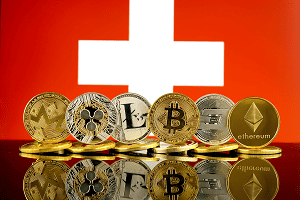Another step towards a cashless society?
Switzerland’s government is considering launching its own cryptocurrency, a so-called e-franc that would use technology similar to bitcoin.
A statement from the country’s Federal Council said, “The Council is aware of the major challenges, both legal and monetary, which would be accompanied by the use of an e-franc.” The Council has asked that a report be prepared examining the risks and opportunities of an e-franc and clarifying the legal, economic and financial aspects. If the report is approved by Switzerland’s lower parliament, the Swiss Finance Ministry is likely to give the green light to a more detailed study.
The idea to develop a national cryptocurrency was put forward by Romeo Lacher, chairman of the Swiss stock exchange (SIX). He stated, “An e-franc under the control of the central bank would create a lot of synergies—so it would be good for the economy.”
But not everyone agrees. Andréa Maechler, a board member of the Swiss National Bank, said, “Private-sector digital currencies are better and less risky than nationally issued versions, as a government-issued cryptocurrency could increase the risk of so-called bank runs.”
 |
Switzerland is among the friendliest countries in the cryptosphere globally, with some of the most prominent blockchain companies and organizations based in the Crypto Valley near Zurich. However, the adoption of the e-franc is by no means a foregone conclusion. If it materializes, the crypto industry will be massively elevated.
Other countries are considering similar measures. Sweden’s central bank, the Riksbank, has explored the idea of an “e-krona” for some time as the country gradually moves toward a cashless society. It would have the potential to counteract the problems that could arise when the use of cash rapidly declines.
Venezuela’s cryptocurrency, the petro, is considered more of a way for the country’s government to bypass US economic sanctions, rather than as a viable digital virtual currency.



